David Gibson of the Religion News Service has an article up called Rick Santorum appears to be a Catholic and an evangelical
I note with some amusement that Democratic aligned Catholic group has sort of made another headline as to this article as it tweeted Is Rick Santorum an Evangelical in Catholic clothing? . You know is he really one of us :) .
A few thoughts and perhaps clarifications to this story. I think we sometimes forget how diverse the Catholic population is ,and perhaps we are thinking of some old models as to communication.
Louisiana of course has always had a substantial Catholic population mixed in with a lot of Evangelicals and Baptist. Throw in the black Church and the very political mostly white Pentecostal movement it gets interesting. Catholic politicos both Republican and Democrat have for decades spoken from altars of non Catholic Churches and are quite good at speaking this language.
The Catholic Bobby Jindal is perhaps the best as he talks about being "born again" in
various Churches on Sunday mornings.
Senator Vitter , also Catholic, does not use the "born again" terminology but he is rather apt in talking evangelical language. So is Democrat Mary Landrieu.
The fact is with the demographic shift of Catholics to the West and to the South we see more of this all the time.
On to the article:
Yet Santorum is not an outlier. Rather, he represents a new kind of religious hybrid, the result of a kind of cross-pollination between evangelicals and Catholics that has taken place in recent decades.
That interaction began in earnest in the 1980s as conservative evangelicals and conservative Catholics began collaborating in the battle against abortion. The visibility and popularity of the late Pope John Paul II gave it a boost.
"It's the influence of the John Paul II revival in the Catholic Church which encouraged a 'less urbane' rhetoric about personal faith," Hudson said.
That Catholic influence went the other way as well. A host of prominent conservative Christians -- including Hudson, who used to be a Southern Baptist -- have converted to Catholicism in recent years. Gingrich is one, and Santorum himself helped former GOP senator and current Kansas Gov. Sam Brownback become a Catholic. Jeb Bush is also a convert, and that has all contributed to a sense of cultural familiarity among conservative believers.
This true But for clarification sake Brownback was United Methodist ,and I believe Jeb Bush was an Episcopalian
What's really important is that Santorum espouses their values, because in a multifront culture war, an "ecumenism of the trenches" prevails over Reformation-era disputes about doctrine. So when Santorum makes full-throated opposition to gay marriage and abortion his signature issues, he is effectively singing from the evangelical hymnal.
"Rick Santorum may technically not call himself an evangelical but he is definitely one when it comes to social issues, so don't get too caught up in the title of 'Roman Catholic,'" David Brody, chief political correspondent for Pat Robertson's Christian Broadcasting Network, wrote after the Iowa vote.
"Santorum is an evangelical at heart."
He may also be more of an evangelical in policy. Indeed, if Santorum's opposition to gay marriage and abortion are in sync with the Catholic bishops, those positions resonate far more with conservative Protestants than they do with the average Catholic.
I wonder if there is so much difference. Especially if we looking at Mass going for Catholics and Church going for Protestant attendance rates. Also I do think Catholics differ by region as to issues. For instance Catholics seem far more Pro State Execution in the South. Heck look at Louisiana. However Catholics in the Midwest ( even in States that have execution) seem to be far less intense on the issue. See Ohio.
Moreover, Santorum openly splits with the hierarchy -- espousing positions traditionally associated with evangelicals -- in his opposition to immigration reform and universal health care, and his support for aggressive military action abroad and steep spending cuts at home.
Santorum's religious rhetoric is just as important in cultivating his evangelical appeal, and that is something new for Catholic politicians
.
Again I do wonder how close the flock is with the hierarchy on issues such as immigration reform.
It should be noted that the Evangelical leadership and Catholic Leadership seems to be largely on the same page thought their flock might not be. See the fact that while the Southern Baptist Convention passed a pro immigration reform resolution the State of Alabama passed a rather strict immigration law. So for non Hispanic Catholics in the South I do wonder how far they are from their evangelical counterparts. Region plays a role of course but I can't help to note that Catholics seem too differ from the Bishops on aspects of immigration policy nationwide a great deal. I don't like that but that is the case.
Military intervention is also something that we might see regional differences on.
Santorum is also a youthful 53, and a squeaky-clean family man. He has a large family, and relates affecting stories about a son that died at birth and about his youngest daughter, who suffers from a terminal illness.
That kind of confessional, public piety has generally been foreign to Catholics, and remains so for many of the older generation. During the 2004 campaign, Democratic nominee John Kerry struggled to make "God talk" while George W. Bush spoke comfortably about his faith.
Yet Santorum is not an outlier. Rather, he represents a new kind of religious hybrid, the result of a kind of cross-pollination between evangelicals and Catholics that has taken place in recent decades.
..Ironically, the downside for Santorum and the new generation of "hybrid" Catholics is that in winning votes from the religious right, they may also be losing the support of fellow Catholics who don't recognize themselves or their faith in the stump speeches of these staunch conservatives.
The poll numbers so far reflect Santorum's difficulty in winning Catholic backing: in New Hampshire on Tuesday, Santorum's evangelical support (23 percent) was nearly three times his support among Catholics (8 percent). While there may be a way for him to secure the Republican nomination without his fellow Catholics, winning the general election without them could be near impossible.
I actually have to think Santorum main problem will be money and time. New Hampshire Catholics are different from lets say Wisconsin Catholics. The main problem for Santorum is will he be able to survive long enough to make that case.
A good point. But again it might be not so foreign depending on where you live.
Wednesday, January 11, 2012
The Catholic and Evangelical Rick Santorum
Posted by
James H
at
1/11/2012 04:01:00 PM
![]()
Labels: 2012, Catholic Politics, GOP, santorum
Subscribe to:
Post Comments (Atom)


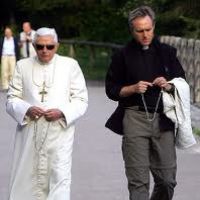

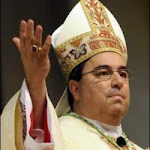



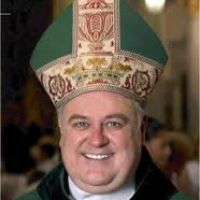
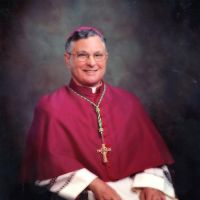
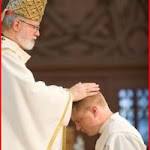
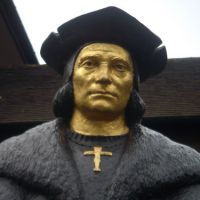
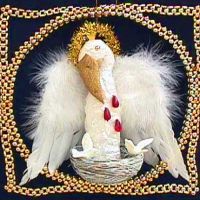
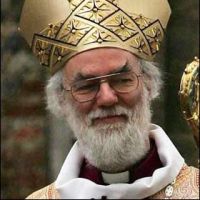
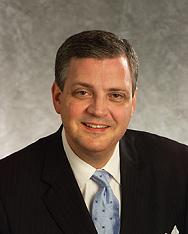
No comments:
Post a Comment